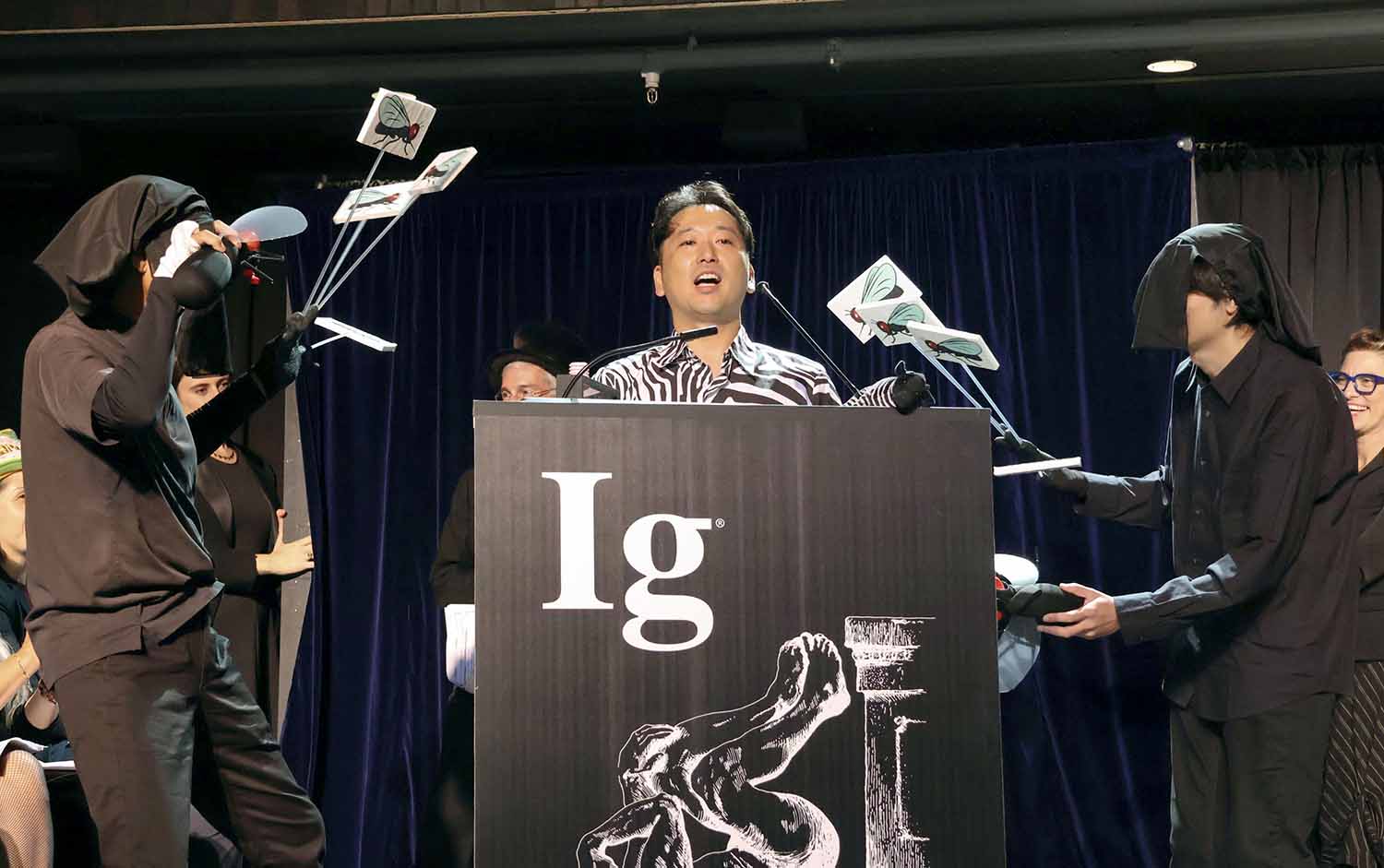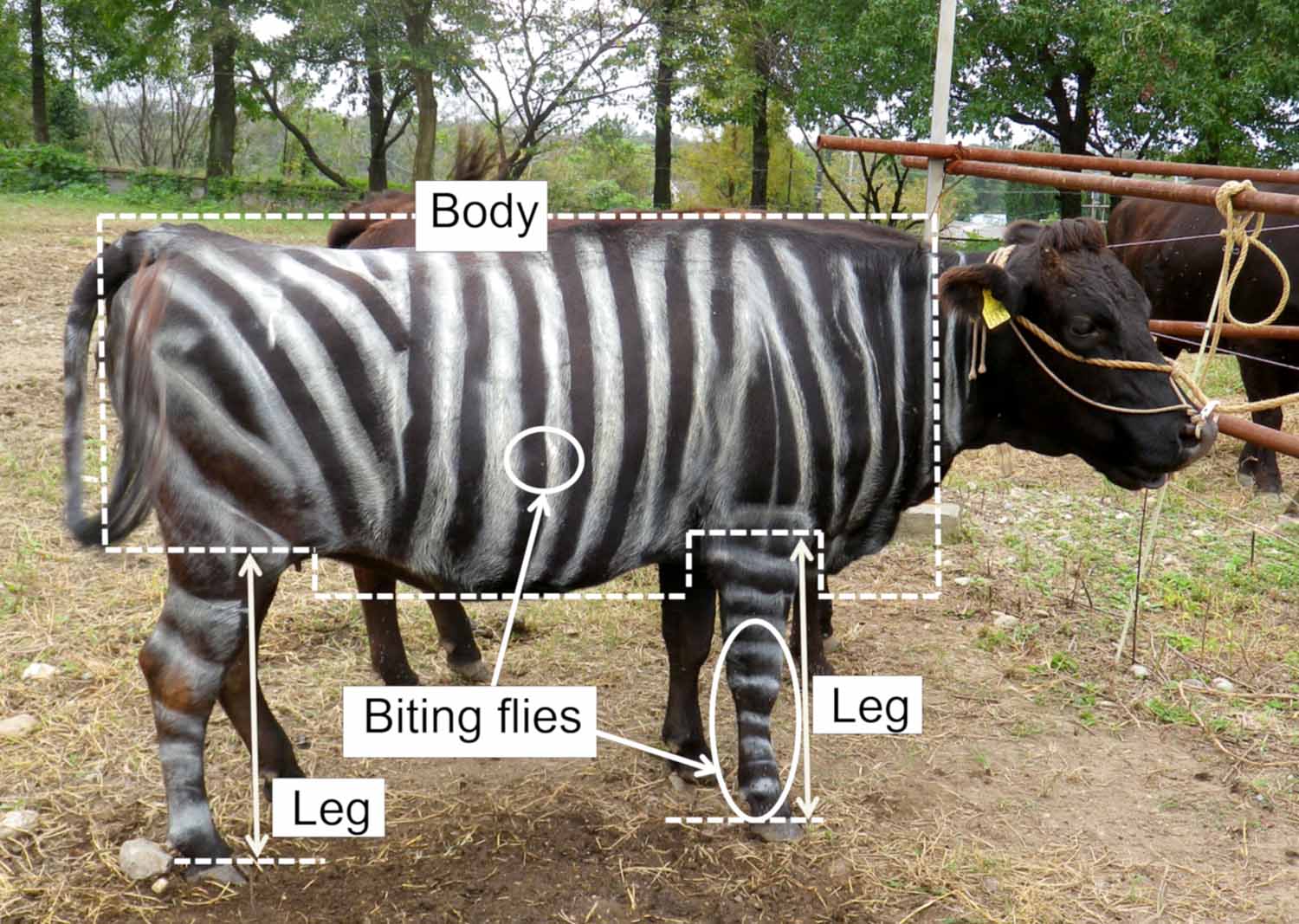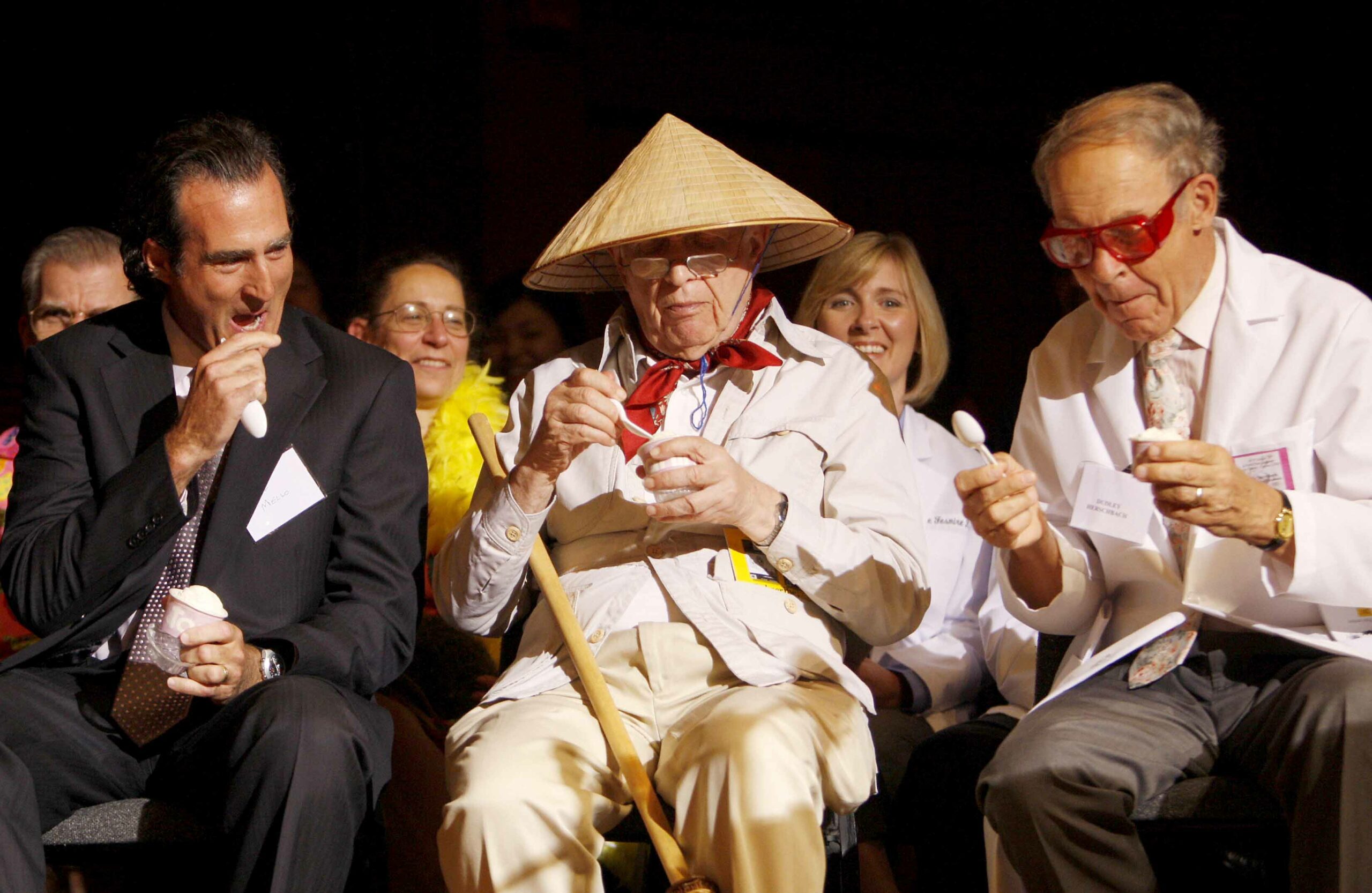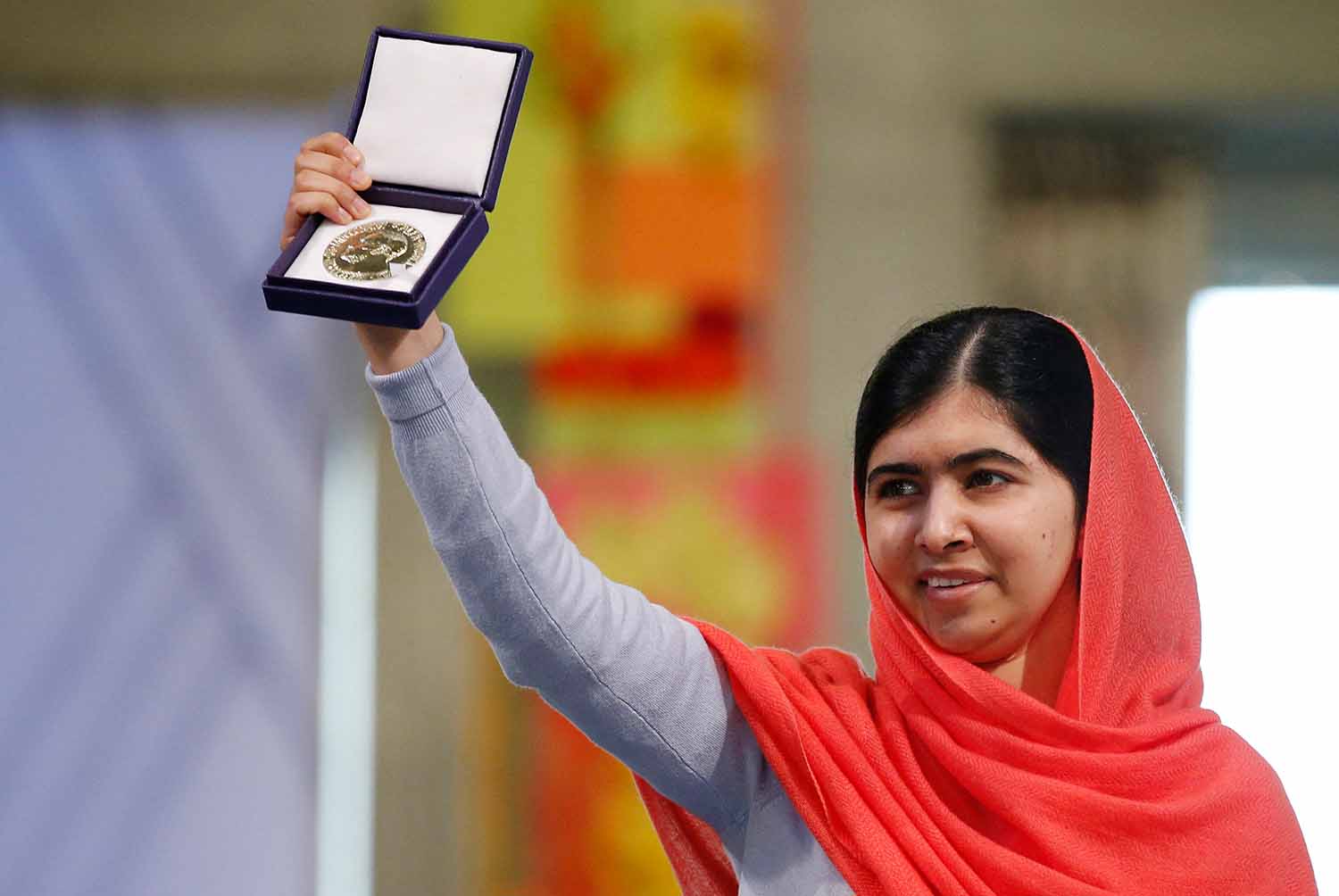Science’s Silliest Night
The Ig Nobel Prizes celebrate science that makes people laugh, then think.

© Kyodo News/Getty Images
Researcher Tomoki Kojima (center) wears a zebra-patterned shirt as he and his colleagues explain that painting stripes on cows seems to reduce fly bites.
One of the most exciting scientific ceremonies in the world begins with an odd tradition—the audience pelts the ceremony stage with hundreds of soaring paper airplanes! This is no regular awards night. The Ig Nobel Prizes celebrate seemingly silly, yet very real, scientific research done around the world. This year’s award winners included a group of scientists who painted zebra stripes on cows and another who recorded lizards eating pizza.
The Annals of Improbable Research, a science magazine, awards the Ig Nobel Prize (also called the Igs) to scientific achievements “so surprising that they make people laugh, then think.” Each year, 10 prizes are awarded to achievements that seem unusual and imaginative.
Japanese scientist Tomoki Kojima and his colleagues won an Ig this year for their research experiment painting cows with black and white zebra stripes. The experiment showed that the zebra pattern reduced the number of biting flies landing on the cows. The results suggest farmers who don’t want to use pesticides could instead use this unusual method to deter flies.
“When I did this experiment, I hoped that I would win the Ig Nobel. It’s my dream,” Kojima said in an interview with the Associated Press.

© Kojima T, Oishi K, Matsubara Y, Uchiyama Y, Fukushima Y, Aoki N, et al.(CC by 4.0)
Tomoki Kojima and other researchers painted zebra stripes on cows to see if this pattern reduced the number of flies that landed on the cows.
Another research team won a prize “for studying the extent to which a certain kind of lizard chooses to eat certain kinds of pizza.” For this research, an international group of scientists offered slices of different pizza flavors to rainbow lizards in Togo, a country in West Africa, to see which type of pizza the lizards prefer. Their results showed that the lizards always chose the “four cheeses” pizza flavor, likely an adaptive response to living in cities.
“Every great discovery ever, at first glance seemed screwy and laughable,” Marc Abrahams, the editor of the Annals of Improbable Research, told the Associated Press. “The same is true of every worthless discovery. The Ig Nobel Prizes celebrate ALL these discoveries, because at the very first glance, who really knows?”
The awards night is also silly and fun for the scientific community, mixing in components of a circus, an opera, and a comedy show. The Igs encourage the joy of curiosity and interesting science. A Nature magazine columnist once said, “The Ig Nobel awards are arguably the highlight of the scientific calendar.”




